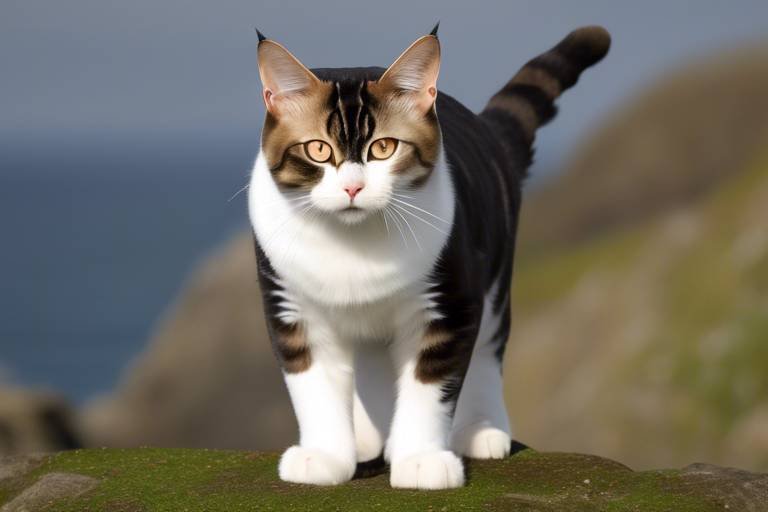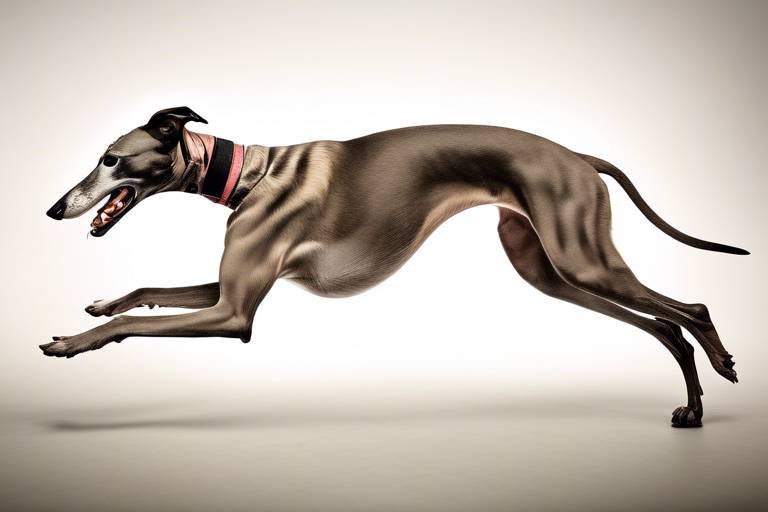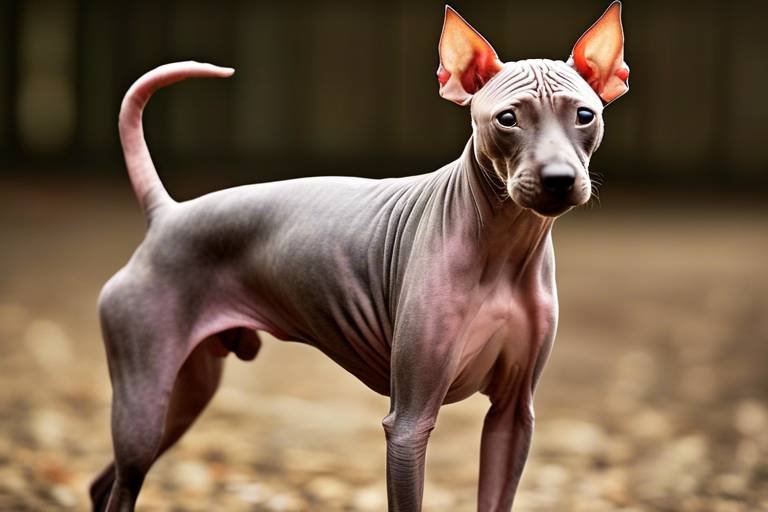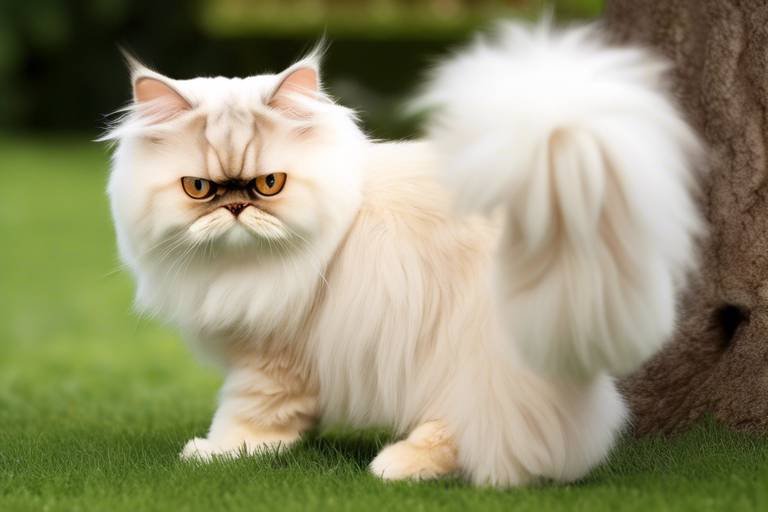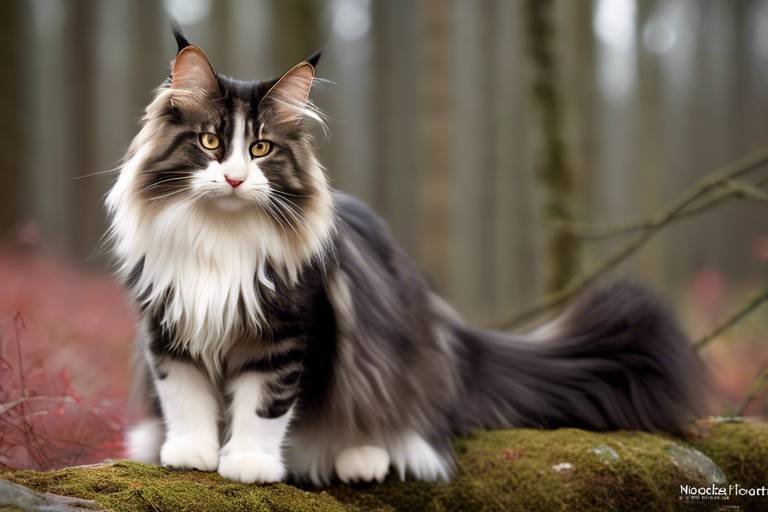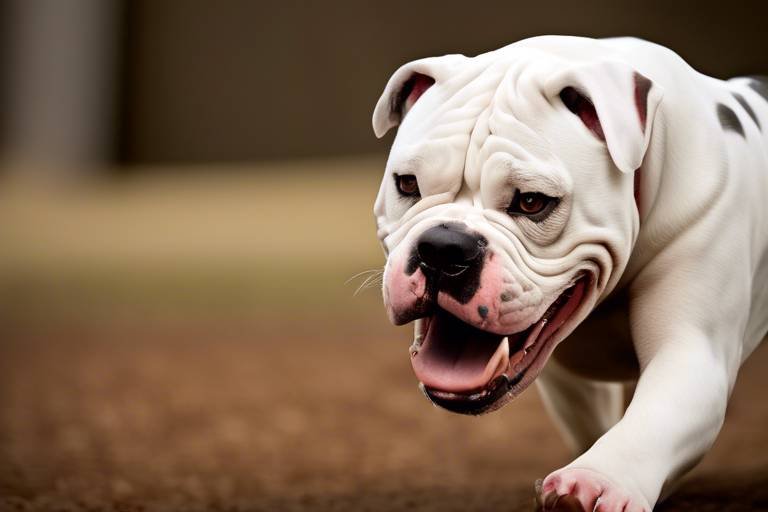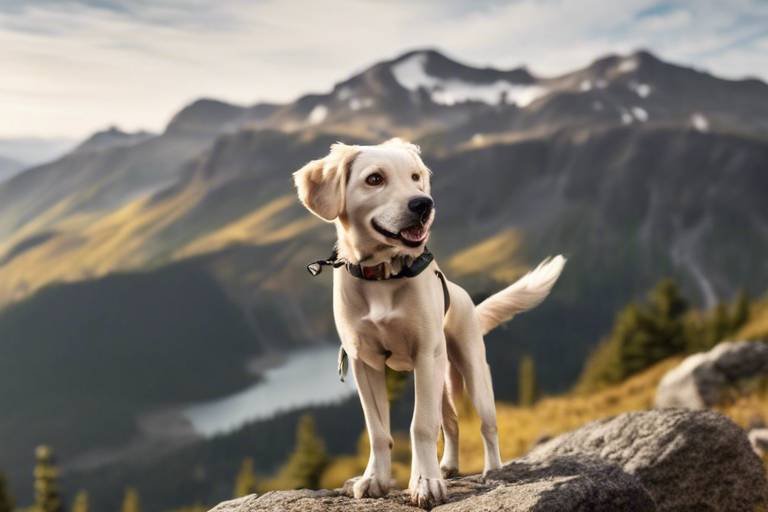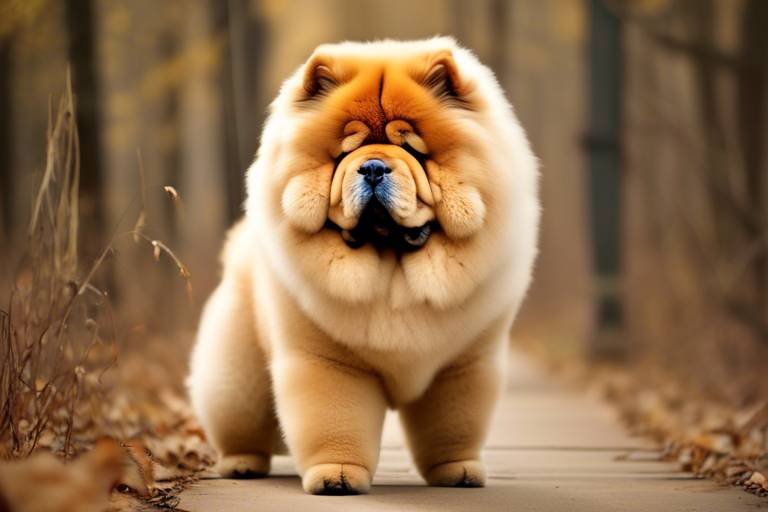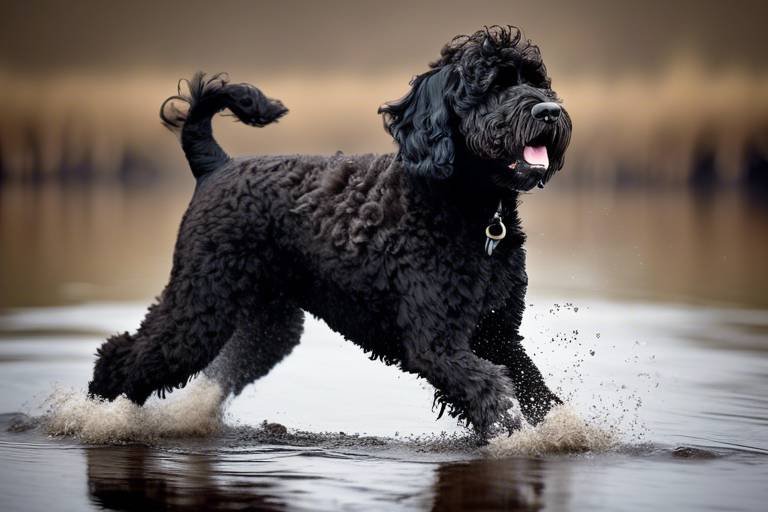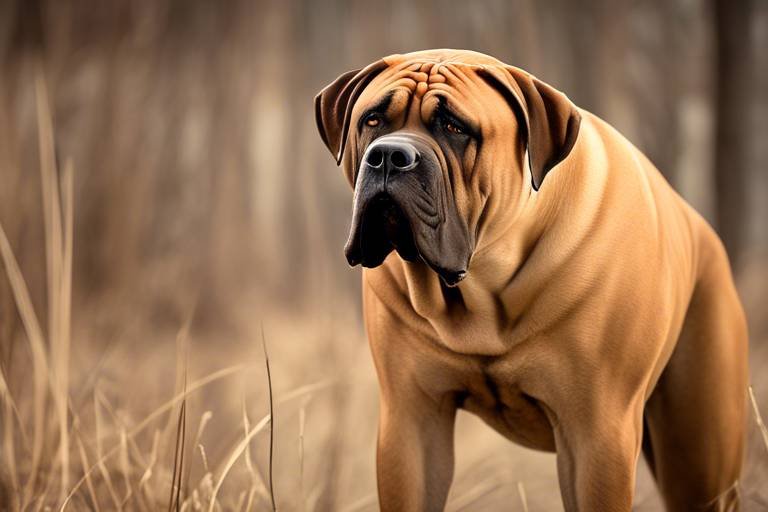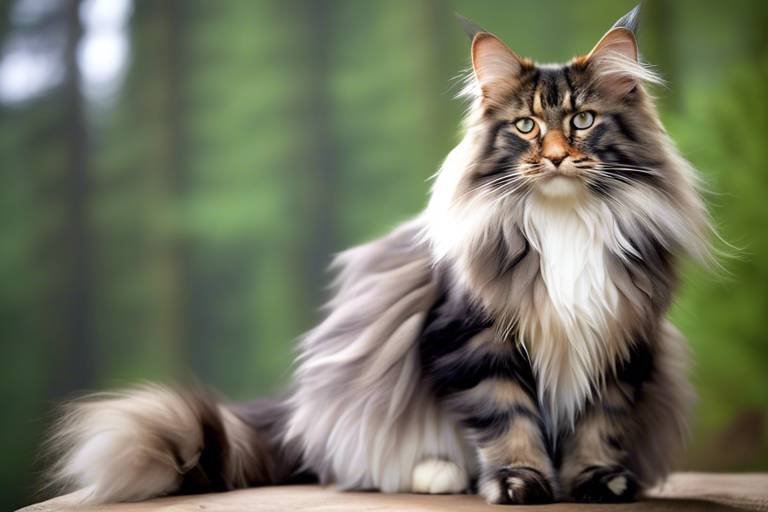Understanding the Traits of the Chien de Chasse
The Chien de Chasse, often referred to as the "hunting dog," is not just any canine companion; it's a remarkable breed that embodies the spirit of adventure and loyalty. With a rich history that intertwines with hunting traditions, this breed has evolved into an exceptional partner for those who enjoy outdoor pursuits. But what makes the Chien de Chasse so special? In this article, we will delve into the unique characteristics of this breed, exploring its origin, physical traits, temperament, training needs, and health considerations. By the end, you will have a comprehensive understanding of why the Chien de Chasse is not just a pet, but a true hunting ally and a beloved family member.
The Chien de Chasse has a storied past that dates back centuries, with roots deeply embedded in the hunting practices of various cultures. Originally bred for their keen senses and exceptional tracking abilities, these dogs were indispensable to hunters who relied on them to track game and assist in the hunt. Understanding the historical background of the Chien de Chasse allows us to appreciate its development over time. This breed was shaped by the diverse environments in which they thrived, adapting to the needs of hunters across different terrains. From dense forests to open fields, the Chien de Chasse has always been a versatile and reliable companion.
When it comes to physical traits, the Chien de Chasse is truly a sight to behold. Known for their athletic build and striking appearance, these dogs possess features that contribute significantly to their effectiveness as hunting companions. Their size, coat type, and overall demeanor make them not only appealing but also well-suited for various hunting conditions. The Chien de Chasse typically has a strong, muscular body that reflects its agility and endurance, essential for long days in the field.
The size and build of the Chien de Chasse are tailored for performance. These dogs are medium to large in stature, with a well-proportioned body that allows for swift movements and stamina. Their strong legs and deep chest enable them to cover ground quickly, making them excellent trackers. The breed's physical attributes are not just for show; they are designed for the rigors of hunting, ensuring that the Chien de Chasse can keep up with the demands of the chase.
Typically, the weight of a Chien de Chasse can vary widely based on individual genetics and diet, but most fall within the range of 50 to 70 pounds. Understanding this weight range is crucial for potential owners, as it helps in selecting a dog that fits their lifestyle. A dog too heavy may struggle with agility, while one that is too light may lack the strength needed for hunting. Therefore, it's essential to consider the dog’s weight in relation to its intended role as a hunting companion.
The Chien de Chasse showcases a variety of coat types, which not only contribute to their aesthetic appeal but also reflect their adaptability to different climates. Common coat types include short, dense fur that provides protection against the elements, as well as longer, wavier coats that may be better suited for colder environments. Each coat type comes with its own grooming needs, impacting the overall health and well-being of the dog. Regular grooming not only keeps the coat looking its best but also helps prevent skin issues and promotes a healthy lifestyle.
When it comes to temperament, the Chien de Chasse is known for its friendly and loyal nature. These dogs are not just excellent hunters; they also make wonderful family pets. Their social behavior is characterized by a strong bond with their human companions, making them both affectionate and protective. In addition, their trainability is a significant asset, as they respond well to positive reinforcement and enjoy engaging in activities that stimulate their minds. This combination of loyalty, intelligence, and playfulness makes the Chien de Chasse an ideal choice for families who lead active lifestyles.
Proper training and socialization are essential for the Chien de Chasse to thrive in both hunting scenarios and family life. Early socialization helps these dogs develop into well-rounded pets that interact positively with people and other animals. Training techniques should be tailored to their energetic nature, ensuring that they remain engaged and motivated throughout the process. Whether through obedience classes or outdoor activities, the key is to create a balanced approach that fosters both discipline and fun.
To enhance the hunting skills and obedience of the Chien de Chasse, various training techniques can be employed. Consistency is crucial; using commands that are clear and easy to understand will help the dog learn more effectively. Incorporating games into training sessions not only makes learning enjoyable but also reinforces the bond between dog and owner. Techniques such as clicker training can be particularly effective, allowing for immediate feedback and positive reinforcement.
Socialization is vital for the Chien de Chasse, as it significantly impacts their interactions with people and other animals. A well-socialized dog is more confident and less likely to develop behavioral issues. Early exposure to different environments, sounds, and experiences can help shape a balanced and adaptable pet. For instance, taking the dog to parks, introducing them to various people, and allowing them to interact with other dogs can create a well-adjusted companion.
Understanding the health needs of the Chien de Chasse is paramount for potential owners. Like all breeds, they are prone to certain health issues that can impact their quality of life. Regular veterinary check-ups, vaccinations, and preventative care are essential components of maintaining their health. Additionally, being aware of common health issues allows owners to be proactive in their care, ensuring a healthy and active lifestyle for their furry friend.
Some common health issues that may affect the Chien de Chasse include hip dysplasia, ear infections, and skin allergies. By identifying these issues early on, owners can take appropriate measures to manage their dog's health. Regular check-ups and a keen eye for any changes in behavior or physical condition can help catch potential problems before they escalate. Ensuring a healthy lifestyle through exercise and proper nutrition also plays a significant role in preventing health issues.
A proper diet is essential for the Chien de Chasse's health, providing the necessary nutrients to support their energy levels and overall well-being. High-quality dog food that is rich in protein and balanced with vitamins and minerals is crucial. It's also important to consider the dog's age, size, and activity level when determining feeding practices. Regular feeding schedules and portion control can help maintain a healthy weight, contributing to a long and active life.
- What is the average lifespan of a Chien de Chasse? The average lifespan is around 10 to 14 years, depending on genetics and care.
- Are Chien de Chasse good with children? Yes, they are typically friendly and protective, making them great family pets.
- How much exercise do they need? Chien de Chasse require daily exercise, ideally involving activities that stimulate both their mind and body.
- What are the grooming needs? Grooming needs vary by coat type, but regular brushing and occasional baths are essential for maintaining their coat health.

Origin and History
The Chien de Chasse, often referred to as the "hunting dog," boasts a fascinating lineage that intertwines with the very essence of hunting culture. Originating from France, this breed has been meticulously developed over centuries, specifically to assist hunters in tracking and retrieving game. The history of the Chien de Chasse is not just a tale of breeding; it is a narrative steeped in tradition, loyalty, and the bond between humans and dogs.
Historically, the Chien de Chasse was bred from a mix of various hound breeds, each contributing unique skills that enhanced its hunting prowess. The blending of these breeds was not haphazard; it was a deliberate effort to create a dog that could excel in diverse terrains and conditions. This adaptability has allowed the Chien de Chasse to thrive in both the dense forests and open fields of France, making it a favorite among hunters.
As hunting practices evolved, so did the role of the Chien de Chasse. Initially, these dogs were primarily used for tracking large game, such as deer and boar. However, their versatility soon became apparent, and they began to assist in smaller game hunting as well. This transition reflects the dog’s intelligence and ability to learn various hunting techniques, which has only solidified its reputation as a reliable companion in the field.
In the modern era, the Chien de Chasse has not only maintained its hunting capabilities but has also found a place within family homes. Their loyal and affectionate nature makes them excellent companions, bridging the gap between the wild and the domestic. Today, many owners appreciate the Chien de Chasse not just for its hunting skills but also for its role as a family pet, showcasing its adaptability to various lifestyles.
To better understand the Chien de Chasse's historical significance, let’s take a look at some key milestones in its development:
| Year | Event |
|---|---|
| 16th Century | Initial breeding of hunting dogs in France begins. |
| 19th Century | Formal recognition of the Chien de Chasse as a distinct breed. |
| 20th Century | Chien de Chasse gains popularity as both a hunting dog and family pet. |
The rich background of the Chien de Chasse not only highlights its importance in hunting but also emphasizes the deep-rooted connection between humans and their canine companions. As we delve deeper into the characteristics of this remarkable breed, it becomes clear that the Chien de Chasse is more than just a hunting dog; it is a symbol of loyalty, intelligence, and adaptability that has stood the test of time.
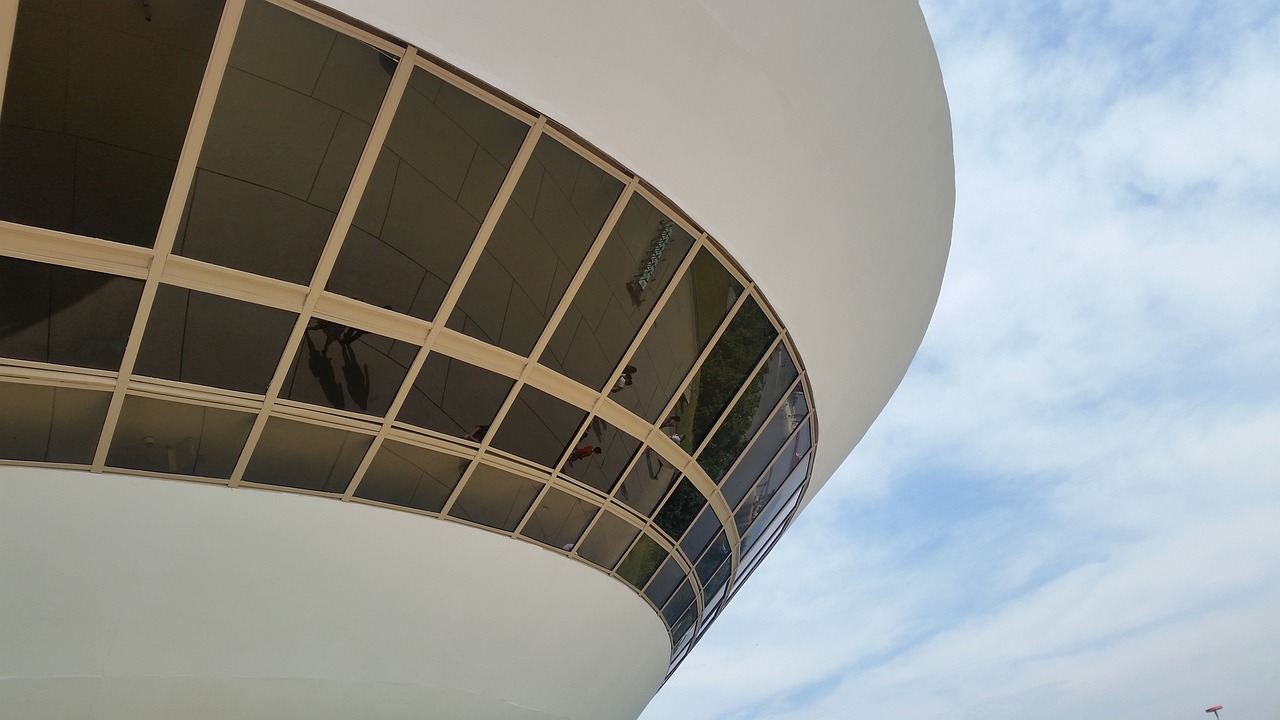
Physical Characteristics
The Chien de Chasse is not just another hunting dog; it possesses a unique set of physical traits that make it an exceptional companion in the field. Understanding these characteristics can help potential owners appreciate what makes this breed stand out. First off, let's talk about size and build. This breed is typically medium to large, with a well-proportioned body that balances strength and agility. Their muscular build allows them to navigate through various terrains with ease, whether it’s dense woods or open fields. Imagine a well-crafted athlete—this is the Chien de Chasse in the dog world!
When examining the size and build of the Chien de Chasse, it’s clear that nature has designed this breed for performance. Most Chien de Chasse dogs stand between 20 to 28 inches tall at the shoulder, with males generally being larger than females. This height, combined with their sturdy frame, gives them the endurance needed for long hunts. They are built to run, jump, and navigate through various obstacles, making them reliable partners for hunters. Just picture them sprinting through the brush, their bodies fluidly moving with the grace of a gazelle—this is what makes them such effective hunters.
As for weight, the Chien de Chasse typically weighs between 50 to 80 pounds, depending on their gender and overall health. It's important for potential owners to understand this weight range, as it can impact the dog's agility and stamina. An overweight Chien de Chasse may struggle to keep up during a hunt, while an underweight dog might lack the necessary energy. Therefore, maintaining a healthy weight is crucial for their performance and overall well-being.
Now, let’s dive into the coat types of the Chien de Chasse. This breed can come with various coat types that range from short and smooth to slightly longer and wiry. The coat is typically dense and weather-resistant, allowing them to thrive in different climates. Here’s a quick breakdown of the common coat types:
- Short-haired: These coats are low maintenance and ideal for warmer climates.
- Medium-haired: Offering a balance, these coats provide some insulation without excessive grooming.
- Long-haired: While they may require more grooming, long-haired Chien de Chasse dogs often excel in colder environments.
Regardless of the coat type, regular grooming is essential not only for aesthetics but also for maintaining skin health and preventing matting. The Chien de Chasse’s coat is a reflection of its adaptability, allowing it to perform well in various hunting conditions.
Understanding the physical characteristics of the Chien de Chasse is just the beginning. Their temperament and behavior play a significant role in their effectiveness as hunting companions and family pets. Known for their loyalty and intelligence, these dogs are eager to please, which makes training them a rewarding experience. However, they also require consistent socialization to ensure that they adapt well to different environments and situations.
Size and Build
The Chien de Chasse, a remarkable hunting dog, boasts a size and build that are perfectly suited for its role as a hunting companion. Typically, these dogs are medium to large in size, with a well-proportioned body that emphasizes both agility and endurance. Their stature allows them to navigate through various terrains, whether it be dense forests or open fields, without losing their grace or speed. Imagine a sleek athlete, built for performance—this is the essence of the Chien de Chasse.
When we delve deeper into their physical characteristics, we find that the average height of a Chien de Chasse ranges from 20 to 28 inches at the shoulder, depending on the specific type within the breed. Their weight typically falls between 40 to 70 pounds, which varies based on factors such as age, sex, and overall health. This weight range is not just a number; it reflects the dog’s ability to be both powerful and agile, making it an exceptional partner in the field.
To give you a clearer picture, here’s a simple table outlining the size and weight parameters of the Chien de Chasse:
| Size Category | Height (inches) | Weight (pounds) |
|---|---|---|
| Male | 24 - 28 | 50 - 70 |
| Female | 20 - 24 | 40 - 60 |
In terms of build, the Chien de Chasse has a strong, muscular frame that is not overly bulky, ensuring that they can move quickly and efficiently. Their legs are long and powerful, allowing for swift movements and the ability to cover large distances without tiring easily. It’s like watching a finely tuned machine in action—every part works together seamlessly to achieve peak performance.
Moreover, their coat type also plays a role in their overall build. The Chien de Chasse typically has a short to medium-length coat that lies flat against the body, providing minimal resistance while running through brush and undergrowth. This coat not only enhances their aerodynamics but also offers some protection against the elements. Think of it as nature’s way of equipping them for their job.
In summary, the size and build of the Chien de Chasse are integral to its identity as a hunting dog. Their physical attributes, including height, weight, and muscular structure, are all tailored for optimal performance in the field. Whether you’re considering adopting one or simply fascinated by the breed, understanding these traits can help you appreciate the incredible capabilities of the Chien de Chasse.
- What is the average lifespan of a Chien de Chasse? The average lifespan is typically between 10 to 14 years with proper care.
- Are Chien de Chasse good with children? Yes, they are known for their friendly and loyal nature, making them great family pets.
- How much exercise does a Chien de Chasse need? They require regular exercise, ideally at least an hour a day, to keep them healthy and happy.
Weight Range
The Chien de Chasse is a breed that showcases a fascinating range of weights, reflecting its diverse lineage and purpose. Typically, these dogs fall within a weight range of 40 to 90 pounds, depending on their specific type and gender. Males tend to be on the heavier side, often reaching the upper limits of this range, while females generally weigh less, contributing to a more agile build. This variability is not just a matter of aesthetics; it plays a crucial role in their functionality as hunting companions.
Understanding the weight range of the Chien de Chasse is vital for potential owners. A dog that is too heavy may struggle with agility, impacting its performance during hunts, while one that is underweight may lack the stamina needed for prolonged activities. It's essential to consider not just the weight but also the dog's overall build and fitness level. For instance, a well-muscled Chien de Chasse will weigh more than a dog of the same height that is less physically fit.
When assessing the weight of your Chien de Chasse, it's important to take into account factors such as age, diet, and exercise routine. Puppies will naturally weigh less, and as they grow, they will steadily increase in weight until they reach their full adult size, usually around 1 to 2 years of age. During this growth phase, regular vet check-ups can help monitor their weight and overall health.
To give you a clearer picture, here’s a simple breakdown of the weight range by age group:
| Age Group | Weight (lbs) |
|---|---|
| Puppy (8 weeks) | 10 - 15 |
| Adolescent (6 months) | 25 - 40 |
| Young Adult (1 year) | 40 - 70 |
| Adult (2 years and older) | 40 - 90 |
In conclusion, being aware of the weight range of the Chien de Chasse not only helps in selecting the right dog for your lifestyle but also ensures that you can provide the necessary care to keep them healthy and active. So, whether you’re considering bringing one of these remarkable dogs into your home or you’re already a proud owner, understanding their weight dynamics is essential for their well-being.
- What is the average weight of a Chien de Chasse? The average weight typically ranges from 40 to 90 pounds, depending on the dog's gender and type.
- How can I maintain my Chien de Chasse's ideal weight? Regular exercise, a balanced diet, and routine vet check-ups are crucial for maintaining a healthy weight.
- Is it normal for a Chien de Chasse to gain weight as it ages? Yes, like many breeds, Chien de Chasse dogs may gain weight as they age, but it's important to monitor their diet and exercise to prevent obesity.
- What should I feed my Chien de Chasse? A high-quality dog food that meets their nutritional needs, combined with proper portion control based on their weight and activity level, is recommended.
Coat Types
The Chien de Chasse is not just a remarkable hunting companion; its coat types play a significant role in its functionality and adaptability. These dogs typically have a variety of coat types that can vary widely depending on their lineage and specific breed characteristics. Understanding these coat types is crucial for potential owners, as it influences not only the dog's appearance but also its grooming needs and ability to thrive in different climates.
Generally, the Chien de Chasse can be categorized into three primary coat types: short-haired, long-haired, and wire-haired. Each type has its unique features, offering different advantages. For instance, the short-haired variety is often favored for its low-maintenance grooming requirements. These dogs boast a sleek, shiny coat that allows for easy cleaning, making them ideal for hunters who spend long hours in the field. On the other hand, the long-haired Chien de Chasse, with its flowing fur, can provide extra warmth in cooler climates, but it does require more frequent grooming to prevent matting.
The wire-haired version stands out with its rough, bristly coat, which is excellent for repelling water and dirt. This coat type is particularly advantageous for hunting in wet or muddy environments as it helps keep the dog dry and clean. However, it does necessitate regular grooming to maintain its texture and prevent excessive shedding.
To give you a clearer idea, here’s a quick comparison table of the coat types:
| Coat Type | Characteristics | Grooming Needs | Best Climate |
|---|---|---|---|
| Short-haired | Sleek and shiny, low shedding | Low maintenance | Moderate to warm |
| Long-haired | Flowing fur, provides warmth | High maintenance | Cooler climates |
| Wire-haired | Rough and bristly, water-resistant | Moderate maintenance | Wet or muddy environments |
In conclusion, the coat types of the Chien de Chasse not only enhance its beauty but also contribute to its effectiveness as a hunting dog. Potential owners should consider their local climate and personal grooming preferences when choosing a Chien de Chasse. The right coat type can make all the difference in ensuring a happy and healthy life for both the dog and its owner.
- What is the best coat type for a Chien de Chasse in a wet climate? The wire-haired coat is ideal as it repels water and dirt effectively.
- How often should I groom my Chien de Chasse? Grooming frequency depends on the coat type; short-haired dogs require less frequent grooming compared to long-haired ones.
- Are Chien de Chasse coats hypoallergenic? No, they are not considered hypoallergenic, and those with allergies should take this into account.
Temperament and Behavior
The Chien de Chasse is not just a remarkable hunting dog; it’s a companion that embodies loyalty, intelligence, and a spirited nature. Known for their affectionate demeanor, these dogs are often seen as a perfect blend of work and play. Imagine a dog that is as enthusiastic about chasing after game as it is about curling up next to you on the couch after a long day. This breed thrives on companionship and is highly social, making it an excellent choice for families or individuals who enjoy an active lifestyle.
One of the most fascinating aspects of the Chien de Chasse is its adaptability. Whether it’s navigating through dense forests or lounging in a cozy home, this breed adjusts remarkably well to its surroundings. Their playful and energetic nature means they require regular exercise; think of them as a child who needs to burn off energy after a sugary snack! Regular walks, play sessions, and the occasional adventure in the great outdoors keep them happy and healthy.
When it comes to their social behavior, Chien de Chasse dogs are typically friendly and approachable. They are known to get along well with children and other pets, which makes them a fantastic addition to any household. However, their hunting instincts can sometimes kick in, leading them to chase smaller animals. Hence, early socialization is paramount. Exposing them to different environments, people, and other animals from a young age helps shape their behavior and ensures they grow into well-rounded adults.
Training is an essential component of owning a Chien de Chasse. Their intelligence makes them eager learners, but they can also be a bit stubborn at times. Consistent, positive reinforcement training methods work wonders with this breed. Think of training as a dance; it requires rhythm, patience, and a bit of practice to get it right. Incorporating fun activities into training sessions keeps them engaged and eager to learn.
In summary, the temperament and behavior of the Chien de Chasse are what set them apart as both a hunting partner and a beloved family pet. Their loyalty, intelligence, and adaptability create a unique bond with their owners, making them not just a dog, but a cherished member of the family. With proper training and socialization, they can thrive in various environments, bringing joy and excitement to those around them.
- What is the average lifespan of a Chien de Chasse?
The average lifespan is typically around 10-12 years, depending on their health and care. - Are Chien de Chasse good with children?
Yes, they are generally very good with children and can be playful companions. - How much exercise does a Chien de Chasse need?
This breed requires regular exercise, ideally at least an hour daily, to stay healthy and happy. - Do they require special grooming?
Grooming needs can vary based on their coat type, but regular brushing is recommended to keep their coat healthy.
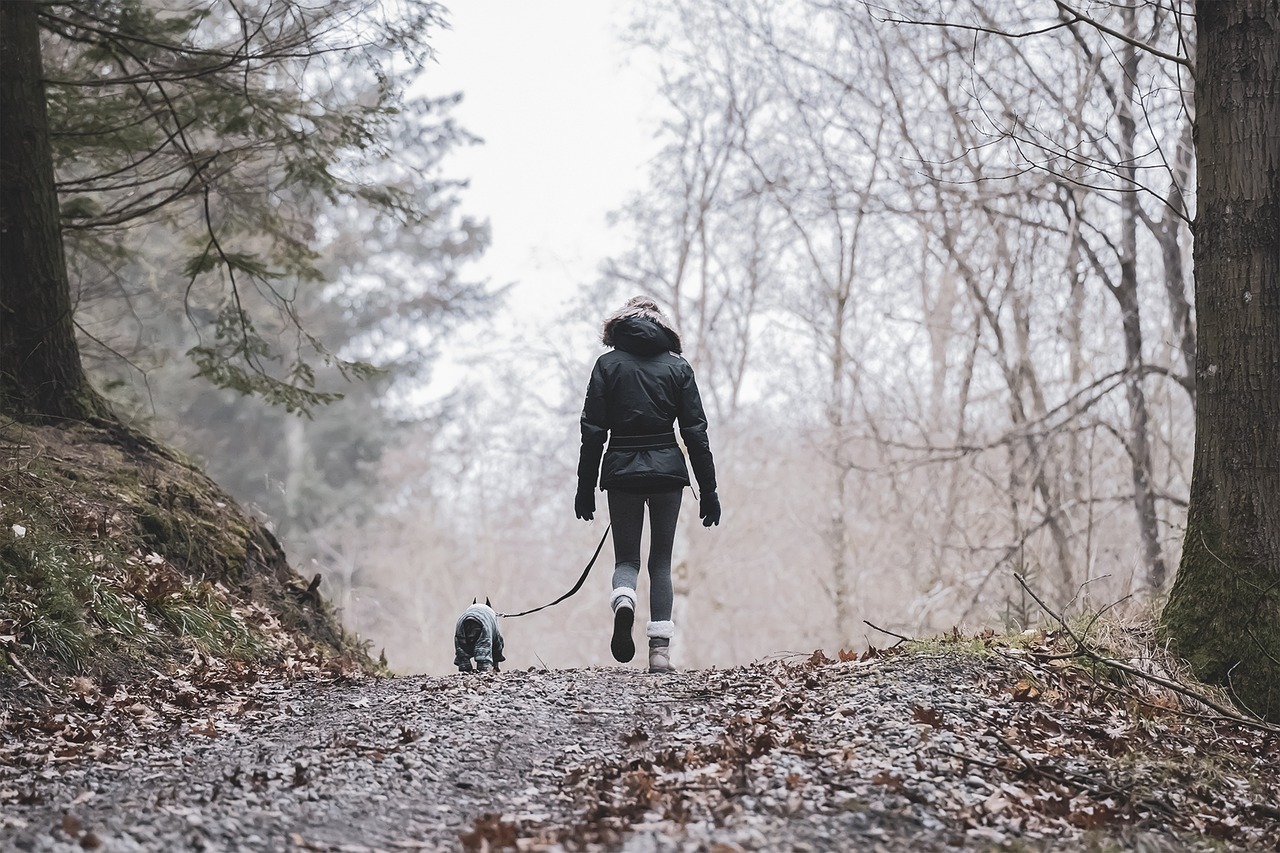
Training and Socialization
When it comes to the Chien de Chasse, proper training and socialization are not just important; they are absolutely essential for ensuring that this remarkable breed thrives in both hunting scenarios and as a beloved family pet. Think of training as the foundation of a sturdy house; without it, everything else can come crashing down. The Chien de Chasse is known for its intelligence and eagerness to please, making it a joy to train. However, like any dog, it requires consistency, patience, and a dash of creativity to unlock its full potential.
One of the most effective training techniques for the Chien de Chasse involves positive reinforcement. This approach not only helps in teaching commands but also builds a strong bond between the dog and its owner. Imagine rewarding your dog with a treat or a hearty "good boy!" after it successfully retrieves a toy. This encouragement not only reinforces the behavior but also makes training sessions enjoyable for both parties. Incorporating games and fun activities can keep the Chien de Chasse engaged and motivated.
Socialization is equally vital. From a young age, exposing your Chien de Chasse to a variety of environments, people, and other animals can significantly impact its behavior. A well-socialized Chien de Chasse is more likely to be confident and less prone to anxiety or aggression. Take your dog on walks in busy parks, introduce it to friendly neighbors, or even enroll it in puppy classes. The goal is to create a well-rounded dog that is comfortable in different situations.
Here are some key aspects to focus on during training and socialization:
- Early Exposure: Introduce your puppy to various sounds, sights, and experiences to help shape its confidence.
- Consistent Commands: Use clear and consistent commands to avoid confusion and facilitate learning.
- Positive Reinforcement: Always reward good behavior to encourage repetition of that behavior.
- Regular Socialization: Make it a habit to expose your dog to different environments and social settings.
Moreover, it’s crucial to understand that training is not a one-time event but an ongoing process. Just as we continue to learn throughout our lives, so too should our dogs. Regular practice of commands and socialization experiences will help maintain your Chien de Chasse's skills and confidence. Remember, a well-trained and socialized Chien de Chasse is not only a better hunting companion but also a more enjoyable pet to have around the home.
In conclusion, investing time and effort into the training and socialization of your Chien de Chasse will pay off in spades. You’ll not only have a well-behaved dog but also a loyal companion that fits seamlessly into your family and lifestyle. So grab those treats, head out to the park, and start building that incredible bond with your Chien de Chasse!
Q: How early should I start training my Chien de Chasse?
A: It’s best to start training as early as possible, ideally when they are puppies, to establish good habits and socialization skills.
Q: What are some common training commands for the Chien de Chasse?
A: Basic commands include sit, stay, come, and heel. These commands form the foundation for more advanced training.
Q: How can I socialize my Chien de Chasse?
A: Socialization can be achieved by exposing your dog to various people, environments, and other animals from a young age. Puppy classes and playdates are excellent opportunities.
Q: Is professional training recommended for Chien de Chasse?
A: While many owners can successfully train their dogs, professional training can be beneficial, especially for first-time dog owners or those looking to refine specific skills.
Training Techniques
Training a Chien de Chasse is not just about teaching commands; it’s about building a bond and establishing trust between you and your furry partner. These dogs are known for their intelligence and eagerness to please, which makes them relatively easy to train. However, it’s essential to use the right techniques to harness their natural instincts and energy effectively. One of the most effective methods is positive reinforcement, where you reward desirable behaviors with treats, praise, or playtime. This approach not only motivates your dog but also fosters a positive learning environment.
Another crucial aspect of training is consistency. Just like humans, dogs thrive on routine. By establishing a regular training schedule and sticking to it, you’ll help your Chien de Chasse understand what is expected of them. For instance, if you’re teaching them to retrieve, practice the command daily and use the same verbal cues. This consistency will reinforce their learning and help them respond more reliably in the field.
Additionally, incorporating socialization into training is vital. Exposing your Chien de Chasse to various environments, people, and other animals will help them become well-adjusted and confident. Socialization should start at an early age, ideally during the puppy stage, to ensure your dog grows up to be friendly and approachable. Consider enrolling them in puppy classes or arranging playdates with other dogs to enhance their social skills.
When it comes to specific training techniques, here are a few that work particularly well with the Chien de Chasse:
- Clicker Training: This method uses a clicker to mark desired behaviors, followed by a reward. It’s a great way to communicate clearly with your dog.
- Leash Training: Given their hunting background, Chien de Chasse dogs can be strong pullers. Teaching them to walk calmly on a leash is essential for enjoyable outings.
- Obedience Training: Basic commands such as sit, stay, and come are crucial. These commands not only keep your dog safe but also enhance their overall behavior.
Lastly, remember that patience is key. Training takes time, and every dog learns at their own pace. Celebrate small victories along the way, and don’t get discouraged by setbacks. By creating a positive, engaging, and consistent training routine, you’ll not only enhance your Chien de Chasse’s skills but also strengthen your bond, making your hunting trips even more enjoyable.
Q: How long does it take to train a Chien de Chasse?
A: The time it takes to train a Chien de Chasse can vary depending on the individual dog's temperament and the complexity of the commands. Generally, with consistent training, you can see significant progress within a few weeks.
Q: Can I train my Chien de Chasse at home?
A: Absolutely! Home training can be very effective, especially when combined with socialization opportunities outside. Just ensure you remain consistent and patient.
Q: What age should I start training my Chien de Chasse?
A: It's best to start training as early as possible, ideally when they are puppies, around 8 weeks old. However, older dogs can still learn new tricks with the right approach!
Socialization Importance
Socialization is absolutely crucial for the Chien de Chasse, and it goes beyond just making your dog a pleasant companion. Think of it as laying the foundation for a well-adjusted and confident canine. When these dogs are exposed to various environments, people, and other animals from a young age, they develop a balanced temperament that is essential for both family life and hunting scenarios. Imagine trying to navigate the bustling streets of a city or the quietude of a forest—your dog needs to be comfortable in both settings, and that comfort comes from early social experiences.
During the critical early months of life, the Chien de Chasse should be introduced to a plethora of stimuli. This includes different sounds, sights, and smells that they might encounter in everyday life. The more diverse their experiences, the more adaptable they become. They learn to distinguish between friendly strangers and potential threats, which is key for a hunting dog that needs to remain focused and composed in various situations.
Incorporating socialization into your routine can be as simple as:
- Taking your dog to parks where they can interact with other dogs and people.
- Inviting friends over to meet your Chien de Chasse.
- Exposing them to different environments, such as busy urban areas or quiet rural settings.
Moreover, a well-socialized Chien de Chasse tends to be more trainable and responsive. They are less likely to exhibit behavioral issues, such as fearfulness or aggression, which can arise from a lack of exposure to various stimuli. A dog that feels secure in its surroundings is much more likely to perform well during hunting tasks, where focus and calmness are paramount.
Ultimately, investing time in socialization not only enhances your dog's ability to interact with the world but also strengthens the bond between you and your furry friend. It’s akin to teaching a child how to navigate social situations; the skills they learn early on will serve them for a lifetime. So, make socialization a priority, and watch your Chien de Chasse thrive both at home and in the great outdoors!
- What is the best age to start socializing my Chien de Chasse? It's ideal to start socialization as early as 8 weeks old, but it's never too late to introduce new experiences.
- How long should I spend socializing my dog each week? Aim for at least a few short sessions each week, gradually increasing the duration and complexity of the experiences.
- Can I socialize my Chien de Chasse with older dogs? Yes, older dogs can provide valuable lessons in social behavior, but be sure they are well-mannered and friendly.

Health and Care
When it comes to the Chien de Chasse, understanding their health and care needs is paramount for any potential owner. These dogs are not just hunting companions; they are beloved family members that require attention, love, and proper care to thrive. Just like us, they can face health challenges, but with the right knowledge, you can ensure your furry friend lives a long, healthy life.
One of the first steps in caring for your Chien de Chasse is to be aware of common health issues that may affect the breed. These dogs are generally robust, but they can be prone to certain conditions, including hip dysplasia, ear infections, and certain skin conditions. Regular veterinary check-ups are essential, as they can help catch any potential problems early on. Additionally, maintaining a good hygiene routine, such as regular grooming and ear cleaning, can prevent many health issues before they arise.
Another critical aspect of health care is nutrition. The Chien de Chasse is an active breed that requires a balanced diet to support its energy levels and overall health. A high-quality dog food that meets their specific nutritional needs is essential. Look for foods that list meat as the first ingredient and contain a good balance of proteins, fats, and carbohydrates. Here’s a quick overview of their dietary needs:
| Nutrient | Recommended Daily Amount |
|---|---|
| Protein | 20-30% of total diet |
| Fats | 8-15% of total diet |
| Carbohydrates | Varies based on activity level |
It's also important to monitor their weight, as obesity can lead to numerous health issues. Regular exercise is vital not only for maintaining a healthy weight but also for keeping your Chien de Chasse mentally stimulated. These dogs thrive on activity, so daily walks, playtime, and even agility training can be beneficial. Think of exercise as a way to build a strong bond with your dog while keeping them fit and happy.
Lastly, preventative care should not be overlooked. Regular vaccinations, flea and tick prevention, and dental care are all crucial components of a comprehensive health plan. By being proactive about your dog's health, you can help ensure they stay by your side for many years to come.
- What is the average lifespan of a Chien de Chasse? The average lifespan is typically around 12 to 15 years, depending on health and care.
- How often should I take my Chien de Chasse to the vet? Regular check-ups every 6 to 12 months are recommended for preventive care.
- What type of diet is best for a Chien de Chasse? A high-quality dog food with a good balance of protein, fats, and carbohydrates is ideal.
- Are Chien de Chasse prone to any specific health issues? Yes, they can be prone to hip dysplasia and ear infections.
Common Health Issues
The Chien de Chasse, like any breed, can be prone to certain health issues that potential owners should be aware of. Understanding these common health concerns is crucial for ensuring your furry friend lives a long, happy, and healthy life. One of the most prevalent issues in this breed is hip dysplasia, a genetic condition where the hip joint doesn’t fit snugly into the hip socket. This can lead to pain and arthritis as the dog ages. Regular vet check-ups and maintaining a healthy weight can help mitigate this risk.
Another issue that owners might encounter is ear infections. The Chien de Chasse has long, floppy ears that can trap moisture and debris, creating an ideal environment for bacteria and yeast to flourish. To prevent this, it's essential to regularly check and clean their ears, especially after swimming or bathing. Additionally, they can be susceptible to skin allergies, which may manifest as itching, redness, or hot spots on the skin. Identifying the allergen through veterinary guidance can help in managing this condition effectively.
Furthermore, eye problems such as cataracts and progressive retinal atrophy can also affect this breed. These conditions can lead to vision impairment and should be monitored closely. Regular veterinary eye examinations can help catch these issues early. It's important to note that while these health issues are common, not every Chien de Chasse will experience them. With proper care, regular veterinary visits, and a healthy lifestyle, many of these concerns can be managed or even avoided altogether.
Here’s a quick overview of some common health issues in the Chien de Chasse:
| Health Issue | Description | Prevention |
|---|---|---|
| Hip Dysplasia | A genetic condition affecting the hip joint, leading to pain and arthritis. | Maintain a healthy weight and regular vet check-ups. |
| Ear Infections | Long ears can trap moisture, leading to infections. | Regular cleaning and checks after swimming. |
| Skin Allergies | Itching and redness due to allergens. | Identify allergens with veterinary assistance. |
| Eye Problems | Cataracts and retinal issues can impair vision. | Regular veterinary eye examinations. |
In conclusion, while the Chien de Chasse is a resilient breed, being proactive about their health can make a significant difference in their quality of life. Regular veterinary visits, a balanced diet, and attentive care can help you catch any potential health issues early, ensuring your loyal companion remains by your side for many adventures to come.
- What is the average lifespan of a Chien de Chasse? The average lifespan is around 10 to 14 years, depending on health and care.
- Are Chien de Chasse good with children? Yes, they are known for their friendly and loyal nature, making them great family pets.
- How much exercise do they need? They require regular exercise, ideally an hour a day, to keep them healthy and happy.
- What type of diet is best for a Chien de Chasse? A balanced diet rich in proteins and nutrients is crucial for their energy levels and overall health.
Nutrition and Diet
The Chien de Chasse, known for its energetic and active nature, requires a well-balanced diet to maintain optimal health and performance. Just like a finely-tuned machine, the right fuel is crucial for this hunting dog to thrive in the field and at home. So, what exactly should you feed your Chien de Chasse to keep it healthy and happy? Let's dive into the essential nutritional components that every owner should consider.
First and foremost, it's essential to provide a diet rich in high-quality protein. This breed is muscular and requires protein to support its energy levels and muscle development. Look for dog foods that list meat as the first ingredient, such as chicken, beef, or fish. Ideally, a protein content of around 20-30% is recommended for adult dogs. Puppies, on the other hand, might require a higher percentage to support their growth.
In addition to protein, carbohydrates play a vital role in the diet of a Chien de Chasse. These dogs need a source of energy to fuel their active lifestyle. Whole grains like brown rice, oats, and barley are excellent choices as they provide sustained energy release. However, some dogs might have sensitivities to grains, so it's essential to monitor your dog's response to its diet and adjust accordingly.
Moreover, don’t forget about the importance of fats. Healthy fats, such as omega-3 and omega-6 fatty acids, are crucial for maintaining a shiny coat and healthy skin. They also support joint health, which is particularly important for a breed that engages in rigorous physical activity. Look for foods that include fish oil or flaxseed oil to ensure your dog gets these essential nutrients.
Hydration is another critical aspect of your dog's diet. Always ensure your Chien de Chasse has access to fresh, clean water. Dehydration can lead to serious health issues, especially after a long day of hunting or vigorous play. Remember, just like humans, dogs can become dehydrated, so keeping their water bowl filled is a must!
To give you a better idea of what a balanced diet looks like for your Chien de Chasse, here’s a simple breakdown of the ideal nutritional components:
| Nutrient | Recommended Percentage |
|---|---|
| Protein | 20-30% |
| Carbohydrates | 30-50% |
| Fats | 8-15% |
Lastly, it's crucial to consult with a veterinarian to tailor your Chien de Chasse's diet to its specific needs, especially if it has any health issues or dietary restrictions. Regular check-ups can help ensure that your dog's nutritional needs are being met and that they are maintaining a healthy weight. Remember, a well-fed dog is a happy dog!
- How often should I feed my Chien de Chasse? - Generally, adult dogs should be fed twice a day, while puppies may require three to four meals.
- Can I give my Chien de Chasse table scraps? - While some human foods are safe, it's best to avoid giving table scraps as they can lead to obesity and digestive issues.
- What are the signs of a good dog food? - Look for high-quality ingredients, no fillers, and a balance of protein, fats, and carbohydrates.
Frequently Asked Questions
- What is the Chien de Chasse known for?
The Chien de Chasse is primarily known for its exceptional hunting skills, making it a favored companion for hunters. This breed is recognized for its agility, endurance, and keen sense of smell, which are essential traits for tracking and retrieving game.
- What are the physical characteristics of the Chien de Chasse?
This breed typically features a robust build with a strong, athletic body that allows for agility in various terrains. Their coat can vary in type, providing them with the adaptability needed to thrive in different climates, while their size ranges from medium to large, depending on the specific lineage.
- How important is training for a Chien de Chasse?
Training is crucial for the Chien de Chasse, as it helps enhance their natural hunting abilities and ensures they are well-behaved companions. Early socialization and consistent training techniques can significantly improve their obedience and adaptability in various situations.
- What kind of temperament does the Chien de Chasse have?
The Chien de Chasse is known for its friendly and loyal temperament. They are generally affectionate with family members and can be good with children. However, their hunting instincts may make them less tolerant of small animals unless properly socialized.
- What are common health issues associated with the Chien de Chasse?
Like many breeds, the Chien de Chasse can be prone to specific health issues, including hip dysplasia and ear infections. Regular veterinary check-ups and a proactive approach to their health can help mitigate these risks and ensure a long, healthy life.
- What should I feed my Chien de Chasse?
A balanced diet is essential for the Chien de Chasse's health. High-quality dog food that meets their nutritional needs, combined with regular feeding schedules, can help maintain their energy levels and overall well-being. It's also important to monitor their weight to prevent obesity.
- Is the Chien de Chasse suitable for families?
Yes, the Chien de Chasse can be a great family pet! Their friendly nature and loyalty make them excellent companions. However, potential owners should ensure they have enough time for training, exercise, and socialization to help them thrive in a family environment.




